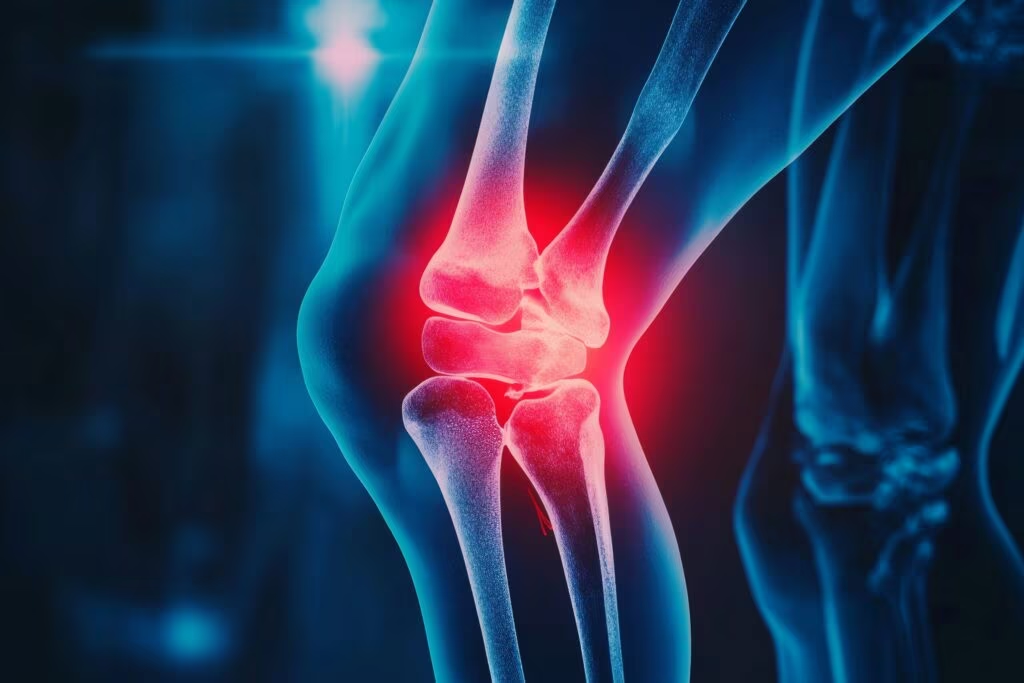Rheumatic Diseases
An Introduction to Rheumatic Diseases
Rheumatic autoimmune diseases are debilitating, painful conditions that cause substantial morbidity and mortality. They constitute a wide spectrum of disorders, which can be due to an abnormal immune response in a specific area, such as rheumatoid arthritis, psoriatic arthritis and ankylosing spondylitis, or can be systemic, such as systemic lupus erythematosus and systemic sclerosis (scleroderma). They are challenging to diagnose since they often present with nonspecific symptoms. The management of these conditions has been transformed in recent years with the development of biological disease-modifying anti-rheumatic drugs and targeted synthetic disease modifying drugs. However, many patients fail to achieve remission or develop side effects.
Browse video highlights and short articles from the conference hub, providing insights into the latest updates from major conferences and peer-reviewed articles from the journal portfolio. This is complemented by a range of educational activities from our expert faculty, with patient outcomes at the forefront.

touchIMMUNOLOGY coverage of EULAR 2025: The 2025 European Alliance of Associations for Rheumatology (EULAR) Congress brought together leading rheumatologists, immunologists, and allied healthcare professionals from across Europe and beyond. Running from June 11–14 in Barcelona, the conference showcased the latest advances in immune-mediated ...

At EULAR 2025, Dr Marina Magrey presented week 52 data from the BE MOBILE 1 and 2 trials, highlighting comparable efficacy of bimekizumab in male and female patients with axial spondyloarthritis. Despite baseline sex differences in symptom duration and disease burden, over 50% of patients achieved ASAS40, supporting bimekizumab’s effectiveness across both radiographic and non-radiographic axSpA.

Interstitial lung disease (ILD) is a common and potentially fatal complication of systemic autoimmune rheumatic diseases (SARDs), such as rheumatoid arthritis (RA) and systemic sclerosis (SSc). ILD may be the first sign of disease or develop later, often with variable clinical courses. Early detection is critical, as delayed diagnosis contributes to poor outcomes. In response, the 2023 American College of Rheumatology (ACR) guidelines emphasize routine screening and risk-based strategies to improve identification and management of SARD-associated ILD (SARD-ILD).

Physician burnout is at a critical point. In this episode, Nicky speaks with Dr Alfred Atanda about why so many physicians are burning out and what can be done to change the trend. From personal experience to system-wide solutions, Dr Atanda shares valuable insights on improving physician well-being and building a more effective healthcare culture.

As part of our Future Leaders series, we spotlight Dr Sonali Bracken, a physician-scientist at Duke University advancing rheumatologic care through cutting-edge research on B cells in autoimmunity. Recently awarded the 2024 ACR Distinguished Fellow Award, Dr Bracken shares insights into her path, research focus, and the emerging therapies poised to transform patient outcomes.

touchREVIEWS in RMD is proud to welcome Dr Vinod Ravindran to our editorial board. With a distinguished background in clinical rheumatology, medical education, and research, Dr Ravindran is widely recognized for his contributions to advancing care and understanding in the field.

In this episode, we explore the future of continuing medical education (CME) with the team behind touchIME. Hannah Fisher and Matthew Goodwin share insights into global and US trends, the importance of patient inclusivity and how educational outcomes are evolving to better measure the direct impact of learning on clinical practice and patient care.

Dr. Vinod Ravindran (Centre for Rheumatology, Calicut, Kerala, India) shares his highlights from RheumaPreg 2025, held in Vienna. The conference covered the full spectrum of pregnancy management in autoimmune rheumatic diseases. Here, he reflects on key insights from expert-led sessions on fertility, immunosuppression, lupus care, and postpartum outcomes.

In this edition of our Future Leaders series, we speak with Dr. Santhanam Sham, a rising star in rheumatology. As a Senior Consultant at Kauvery Hospitals, Chennai, Dr. Sham is dedicated to advancing research on autoimmune diseases like SLE and vasculitis, while also fostering patient-centric care and embracing cutting-edge medical technologies.

From advances in targeted therapies to the integration of AI and steps towards precision medicine, 2024 brought many exciting developments in the field. With 2025 now unfolding, many of these are likely to continue gaining momentum and potentially redefine patient care. In ...

To gain expert insight into the most impactful developments of the past year and the trends set to shape the next, we reached out to our esteemed expert faculty. From advances in targeted therapies to the integration of AI and steps towards precision medicine, here’s what our experts had to say.

The use of immune checkpoint inhibitors (ICIs) in treating cancer has greatly improved survival outcomes, particularly in patients with advanced disease for whom successful treatment options have previously been limited. For example, in patients with metastatic melanoma, the median survival ...

Hypermobility spectrum disorders (HSDs) refer to a group of conditions characterized by an increased range of motion in joints beyond the normal limits, often due to connective tissue laxity. More stringent criteria are applied in the diagnosis of hypermobile Ehlers–...

IgG4-RD is a rare, chronic, relapsing condition characterized by fibroinflammatory lesions rich in CD19+ B cells, which can damage multiple organ systems and lead to organ failure.1 With no approved therapies, glucocorticoids are the primary treatment, but their long-term use is associated with adverse effects and inadequate disease control.1

A new study published in RMD Open has revealed that individuals with rheumatoid arthritis (RA) are significantly more likely to experience cognitive impairment. The study, which involved 70 RA patients and 70 matched healthy controls, showed that 60% of RA patients scored below the threshold for cognitive impairment on the Montreal Cognitive Assessment (MoCA), compared to 40% of the control group. This cognitive decline was most pronounced in visuospatial-executive function, memory and abstraction.

As we have come to expect, EULAR 2024 was a busy and productive meeting, packed with news and lively discussions among rheumatologists. The conference, which took place in Vienna, Austria, highlighted a wealth of innovative research and significant advancements in rheumatology. ...
Latest articles videos and clinical updates - straight to your inbox
Log into your Touch Account
Earn and track your CME credits on the go, save articles for later, and follow the latest congress coverage.
Register now for FREE Access
Register for free to hear about the latest expert-led education, peer-reviewed articles, conference highlights, and innovative CME activities.
Sign up with an Email
Or use a Social Account.
This Functionality is for
Members Only
Explore the latest in medical education and stay current in your field. Create a free account to track your learning.



